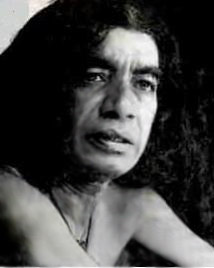 P. J. Antony was born in the year 1923. He was a successful Malayalam author, actor, and also a producer. He was also a national award winner film actor. P. J. Antony received National Film Award for Best Actor for his performance in Nirmalyam in 1974. P. J. Antony was inspired by a desire to build and popularize a strong theatre in Kerala, as well as by Ibsen to make it serve the cause of radical social change. With that motive he organized the Pratibha Arts Club, which spearheaded a reformist theatre movement in and around his hometown, Ernakulam. P. J. Antony acted in N. Krishna Pillai`s trailblazing Bhagna-bhavanam i.e. `Broken Home` in 1942. This was inspired by Ibsen`s `A Doll`s House. The drama Chakravalam i.e. `Horizon` by P. J. Antony, produced by Pratibha on many stages, succeeded in spreading theatre consciousness among the people of his area. Later, he established his own troupe named Pratibha Theatres to perform his plays.
P. J. Antony was born in the year 1923. He was a successful Malayalam author, actor, and also a producer. He was also a national award winner film actor. P. J. Antony received National Film Award for Best Actor for his performance in Nirmalyam in 1974. P. J. Antony was inspired by a desire to build and popularize a strong theatre in Kerala, as well as by Ibsen to make it serve the cause of radical social change. With that motive he organized the Pratibha Arts Club, which spearheaded a reformist theatre movement in and around his hometown, Ernakulam. P. J. Antony acted in N. Krishna Pillai`s trailblazing Bhagna-bhavanam i.e. `Broken Home` in 1942. This was inspired by Ibsen`s `A Doll`s House. The drama Chakravalam i.e. `Horizon` by P. J. Antony, produced by Pratibha on many stages, succeeded in spreading theatre consciousness among the people of his area. Later, he established his own troupe named Pratibha Theatres to perform his plays.
The productions of P. J. Antony revealed the influence of Sangitanataka, similar to those of Kerala Peoples Arts Club in that respect. But in attacking the social order and influenced by the activist naturalism of the Indian People`s Theatre Association as well. He resorted to melodrama to enhance their commercial appeal. However, P. J. Antony`s plays had greater structural unity and other characteristics in common with amateur Malayalam theatre. Potusatrttkkal i.e. `Common Enemies` in 1961 and The Occasions in 1963 became very popular. Antony acted in Malayalam cinema usually as the villain, but shone in Nirmalyam as a tortured priest. P. J. Antony also wrote stories.
In his early 20`s P. J. Antony served in the Royal Navy during the World War II. Post war, he returned home and joined a workshop as an officer. It was in this period in which Antony got chance to work with professional play artists. Soon P. J. Antony established himself as a prominent figure in Malayalam plays with his skills in acting, writing and direction. He soon became a film artist. His debut film was Randidangazhi in 1957, a film adaptation of Thakazhi Sivasankara Pillai`s novel in the same title. P. J. Antony won the National Film Award for Best Actor, then known as the Bharath Award in 1974 for his performance as a velichappadu i.e. an Oracle or medium between the Goddess and the worshipper in a Hindu temple in Nirmalyam, directed by prominent literary figure, M. T. Vasudevan Nair. P. J. Antony was the lyricist and screenwriter for a few films. P. J. Antony also directed a film titled Periyar. This famous Malayalam personality died in the year of 1979.




















